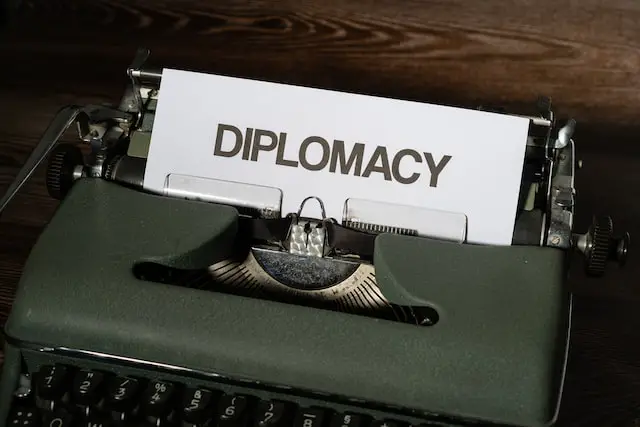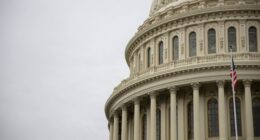Diplomacy typically refers to the specific methods and techniques used to conduct negotiations, while foreign policy encompasses the broader goals and objectives that a state seeks to achieve in its interactions with other states.
What is diplomacy?
In short, diplomacy is the art and practice of managing international relations.
A key component of diplomacy is negotiation. Diplomats work to resolve differences between countries through negotiation, without resorting to violence. They also try to build relationships and trust between nations, in order to promote peace and stability. Simply put, diplomacy is the art of conducting negotiations between two or more countries. It involves tact and skill in order to find common ground and reach agreements.
What is foreign policy?
Foreign policy, on the other hand, is a government’s plan or course of action regarding its international relations.
Foreign policy is focused on a government’s goals and objectives in its dealings with other countries. It takes into account a wide range of factors, including economic interests, security concerns, and ideological objectives. Foreign policy can be proactive or reactive; it can be isolationist or interventionist.
Foreign policy is a country’s overall approach to its relations with other countries. It takes into account a range of factors, including economic, political, military, and cultural interests.
A country’s foreign policy will be shaped by its history, geography, and culture. For example, a country that has been invaded many times in the past may take a more aggressive stance in its dealings with other countries in order to protect itself. Alternatively, a country with strong economic ties to another may pursue a friendlier relationship in order to maintain those ties.
No matter what form it takes, foreign policy always has the ultimate goal of protecting and advancing a country’s interests.
Diplomacy Vs. Foreign policy
Both diplomacy and foreign policy are concerned with a nation’s relations with other countries. However, diplomacy generally refers to the day-to-day management of these relations, while foreign policy is the overall strategy that guides a nation’s diplomatic efforts.
Diplomacy is the tool that governments use to manage their international relations, while foreign policy is the overall strategy that guides those diplomatic efforts. So while diplomacy is concerned with the day-to-day management of relations between states, foreign policy is focused on the long-term vision and strategy.
Why is diplomacy important?
There are many reasons why diplomacy is important. First, it can help prevent or resolve conflicts between countries. This is done by promoting communication and understanding between leaders, and by encouraging compromise and cooperation instead of hostility and aggression.
Second, diplomacy can foster economic development and trade relations between countries. By opening up channels of communication, diplomats can facilitate investment opportunities and economic partnerships that can benefit both sides.
Third, diplomacy plays an important role in promoting cultural exchange and understanding between peoples. Through cultural diplomacy initiatives such as joint music and arts programs, countries can share their traditions and customs with each other, deepening mutual understanding and respect
What are the four types of diplomacy?
There are four types of diplomacy: Public, Commercial, Cultural, and Military.
Public diplomacy is the type of diplomacy that deals with the relationships between a state and its citizens. It is also known as “people-to-people” diplomacy.
Commercial diplomacy is the type of diplomacy that deals with the economic relations between states. It includes issues such as trade, investment, and finance.
Cultural diplomacy is the type of diplomacy that deals with the cultural relations between states. It includes issues such as education, science, and technology.
Military diplomacy is the type of diplomacy that deals with the military relations between states. It includes issues such as arms control and defense cooperation.
What is the history of diplomacy?
The history of diplomacy can be traced back to ancient Greece, where formal diplomatic relations between city-states were established in order to prevent conflict. In the medieval period, diplomacy was often used to resolve disputes between monarchs and between churches. The Renaissance saw a significant increase in the use of diplomacy, as new technologies made communication between distant countries much easier.
During the 18th and 19th centuries, diplomacy became increasingly important as European countries began to colonize other parts of the world. In this era, diplomats were often sent on long missions to try to negotiate peace treaties or secure trade agreements. They also played an important role in establishing embassies and consulates in foreign countries.
The 20th century was a time of great change for diplomacy, as two world wars led to the rise of new superpowers such as the United States and the Soviet Union. Diplomats now had to deal with the complexities of the Cold War, as well as decolonization and other global challenges. Today, diplomacy is still an essential tool for managing international relations, and it has become even more complex in an age of globalization and digital communication.
Photo by Markus Winkler on Unsplash








